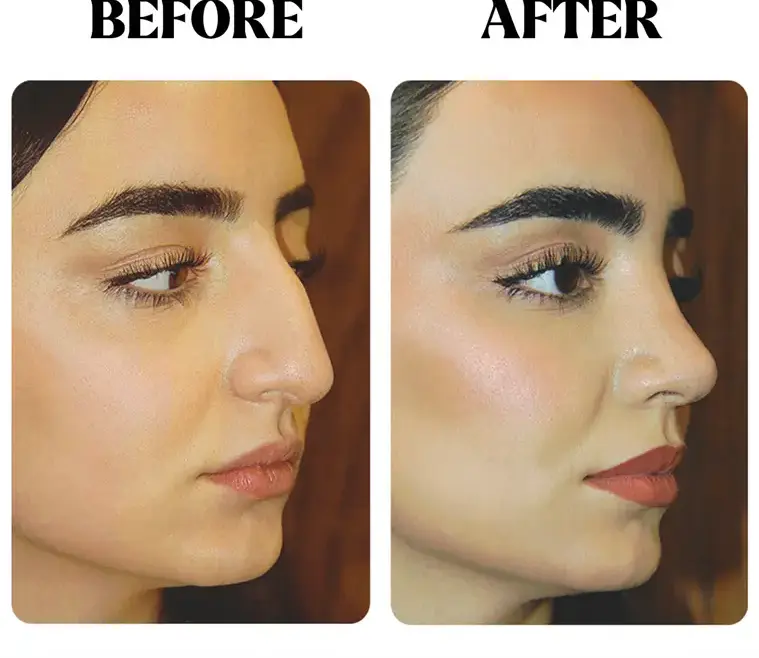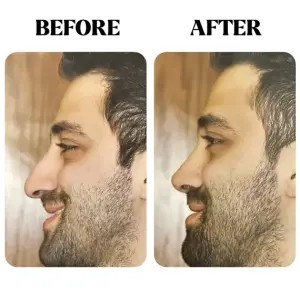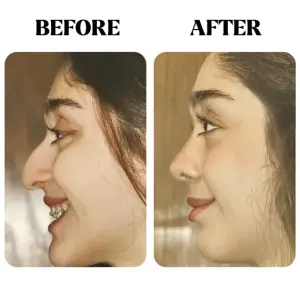Rhinoplasty, often referred to as a “nose job,” is one of the most popular cosmetic procedures, known for its transformative potential to enhance facial harmony and improve breathing issues. If you’re considering rhinoplasty with Dr. Chobanian, here’s what you need to know about preparing for your surgery to ensure a smooth and successful experience.
1. Understand Your Goals and Expectations
Before surgery, it’s essential to have a clear vision of your goals. Dr. Chobanian will guide you through a consultation, helping you understand realistic outcomes based on your facial structure and discussing any medical concerns related to breathing. During this conversation, you’ll review photos, discuss desired results, and develop a tailored plan to achieve your best results.
2. Know Your Health Status
Rhinoplasty is a safe procedure when patients are in good health. To qualify, it’s important to be free from certain conditions that might interfere with the surgery. Dr. Chobanian will conduct a comprehensive health review, including any medical history, current medications, allergies, and overall lifestyle habits. If you have any pre-existing conditions or take medications, be open and honest during this stage to avoid complications later on.
3. Plan Your Recovery Time
Rhinoplasty is an outpatient procedure, meaning you’ll go home the same day. However, you’ll need ample time to rest and recover after surgery. It’s recommended to set aside about 1-2 weeks to focus on your healing process. During this time, you may experience swelling, bruising, and congestion, which are normal parts of the healing process. Plan for time off work or school, and arrange support at home for tasks that may require more physical activity.
4. Follow Pre-Operative Guidelines
Dr. Chobanian will provide specific instructions to prepare for your surgery, including guidelines on:
- Medications: Avoid certain medications like aspirin, ibuprofen, and supplements that can increase bleeding risk.
- Nutrition: Eating a balanced diet can support your immune system and help with healing.
- Lifestyle Habits: Avoid alcohol and smoking in the weeks leading up to surgery, as they can impact your body’s healing process.
5. Prepare Your Home for Post-Operative Comfort
Ensure your home is prepared to support a comfortable recovery. Have supplies on hand like extra pillows to elevate your head, ice packs to reduce swelling, and any prescribed medications readily available. You’ll also want to stock up on easy-to-prepare meals and stay hydrated with water and electrolytes to support healing.
6. Arrange Transportation and Support
Rhinoplasty is performed under anesthesia, so you’ll need someone to drive you home after surgery. Having a friend or family member available to help you for the first 24-48 hours is especially beneficial. This support can ease your recovery by allowing you to focus on rest and healing.
7. Maintain a Positive Mindset
As with any surgical procedure, maintaining a positive outlook can make a big difference in your experience. It’s normal to feel nervous, but Dr. Chobanian and her team are here to support you every step of the way. Take this time to focus on the improvements rhinoplasty will bring to your confidence, comfort, and overall quality of life.
8. Plan for Post-Surgery Follow-Up
Follow-up visits are essential to monitor your recovery and ensure optimal results. Dr. Chobanian will provide a schedule for these appointments and address any questions or concerns you may have along the way. Remember, healing is a gradual process, and Dr. Chobanian is here to support your journey through every step.
Ready to Begin?
If you’re ready to take the next steps toward rhinoplasty, reach out to schedule a consultation with Dr. Chobanian. We’re here to answer your questions, address any concerns, and guide you on your journey to feeling confident in your appearance and breathing with ease.



